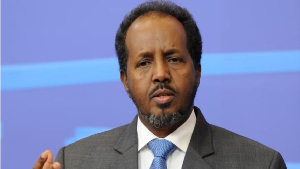Accra, Sept. 9, GNA - Mr. Kwasi Okoh, Customer Development Manager of Unilever Africa, on Thursday decried government's continuous involvement in the privatisation of local companies. He said government's role in the implementation of the divestiture programme is to provide a platform and serve as the regulatory body while the private sector serves as the engine of growth of the economy.
However, "what we find is that cabinet is the country's board f directors setting strategic objectives ...and ranking policies according to some scale of priorities." Mr. Okoh was speaking at the second day of the third annual Pan African Investment Summit under way in Accra. The first two were held in South Africa.
The three-day conference is on the theme: "Privatisation in Practice: Restructuring of State-Owned Enterprises in Africa Into the Next Millennium." Mr. Okoh told the over 300 delegates from Africa, Europe and the US that the private sector has always subscribed to the view that government has "no business being in business and must only play the regulator and referee" but this is not being heeded.
The result is the slow pace at which the programme is moving since most investors would not like to have anything to do with a company that has government's direct involvement. "There is simply too many competing and sometimes in our view non growth, departmental and sectarian issues wit strong champions defeating the notion of collective strategic decision making."
He gave examples of companies that have recorded excellent performance where government has sold its shares to private industry and ceded control. These include Unilever Ghana Limited, GTP, Ghana Breweries limited and the Twifo Oil Palm Plantation among a few other companies.
Mr. Okoh said in the Twifo case, whereas the company had a fruit harvesting cycle of about 120 days with obvious consequences for the yield per acre of the fruiting area, it now has only 14 days fruiting cycle. He said this was achieved through the injection of high quality management.
Mr. Okoh said another major problem that needs to be tackled is the lack of transparency in the disbursement of proceeds accruing from the sale of companies. He said instead of the monies being put in a state fund for its injection into development programmes, the public is rather being led to believe that government is tempted to support its re-current expenditures with proceeds of divestiture.
He said the issue is a source of worry to the private industry adding, "Ghana's divestment process has been proceeding at its own pace and has already accrued some benefits in monetary terms, but where has the money gone? "The Unilever shares, shares in AGC, the sale of GCB, where has the money gone and where will future accruals go."
Mr. Okoh cautioned that everyone knows the disaster that befalls any business that dissipates its fixed assets into working capital and other negative cash flow. "We are expecting that all the benefits are being ploughed back into development and that government is not being tempted to support re-current expenditures with proceeds of divestiture."
He added that while government is doing all to get enough benefits from the divestiture programmes, it should be careful not to replace one system of monopoly with another. Mr. Emmanuel Agbodo, Executive Secretary of the Divestiture Implementation Committee said all procedures covering the implementation of the divestiture programme are very transparent.
He said from time to time, press conferences are organised for the media while educational programmes have been organised for members of the council of state, ministers and parliamentarians and the judiciary alongside advertisements on sale of any company.
He said training programmes are organised for workers affected by retrenchments that occur during the sale of companies in addition to severance awards given them so that they would not become liabilities to society. On the sale procedure, Mr. Agbodo said as much as possible, government tries not to sell liabilities but assets since the liabilities are very high.
He mentioned some of the benefits of the divestiture, which are in the form of increased employment. He said there is always a necessary dislocation of workers but this is always temporary. In the case of Tema Steel Company there was a pre-divestiture retrenchment of 116 workers but the company now has a total workforce of 347 while that of Coca-Cola also moved from 494 to 1,600.
General News of Thursday, 9 September 1999
Source: null












